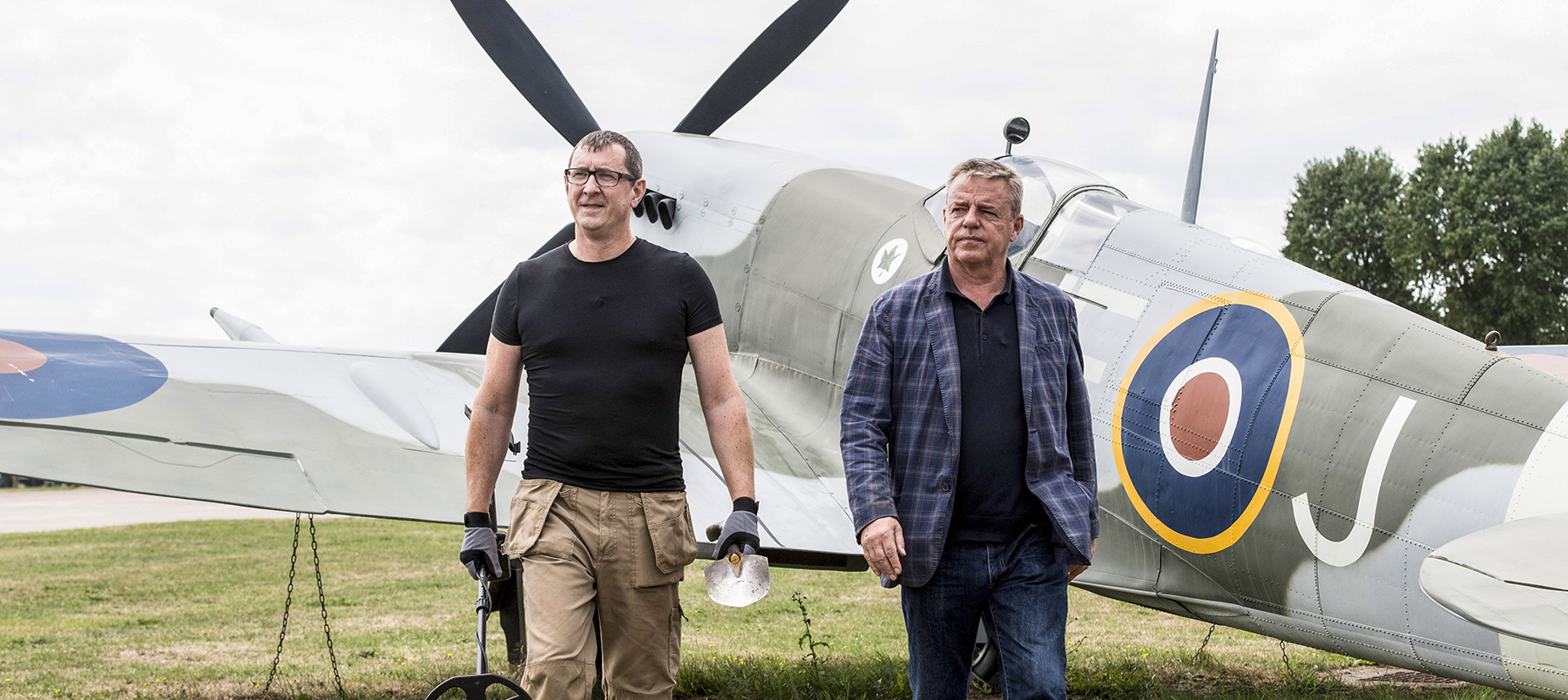
Archaeology experts from the University of Winchester have been working with Madness frontman Suggs to bring forgotten war stories back to life on the new series of the HISTORY® hit TV show: WW2 Treasure Hunters.
Dr Phil Marter, Senior Lecturer in Archaeology and specialist in twentieth century conflict and aviation archaeology, acts as the series archaeologist with support from Winchester MA Cultural Heritage and Resource Management student Will Reid. The two work alongside presenter Suggs and Stephen Taylor, a military and metal detecting expert, to unearth artefacts from the world wars.
The series follows the team as they use state-of-the-art technology, maps and archives to excavate former military sites across the UK, France and Belgium. As the artefacts come to light, they seek to understand what happened at each of the sites and offer a new perspective on the World Wars and the people affected by it.
To mark this year’s centenary of the First World War, the series kicks off with a one-hour special titled WW2 Treasure Hunters: WW1 Special. This focuses on the WWI transit camp at Magdalen (or Morn) Hill, on the outskirts of Winchester. The site was home to over two million soldiers from all over the Empire on their way to the Western Front, and the team find many fascinating artefacts, including some very personal ones.
Dr Marter offered an intimate knowledge of the area to the production team, having researched the site for over ten years as part of the University’s Magdalen Hill Archaeological Research Project.
“Our role was to help record the archaeological work taking place, whilst navigating the challenges of the filming itself,” Dr Marter said, “It was fascinating to witness Suggs’ gift for tapping into the human stories and the production team’s skill at combining this with the expertise used to locate and identify personal items from the past. The result brought genuine insight into the lives of those who experienced war and conflict first hand. As an archaeologist, I found these moments the real treasure of this new series.”
During the course of the rest of the series, the team unearth a number of fascinating items, including a Spitfire shot down in Belgium, the remains of a Fairey Battle Bomber plane in northern France and personal artefacts such as weapons, lucky mascots and condom tins.
Will Reid, who is currently working with the Imperial War Museum as a conservator on HMS Belfast, added: "It is difficult to imagine how it must have felt to have been involved in one of the most crucial conflicts ever fought in history. It has been nothing short of captivating to unearth the artefacts and discover the sites that give a unique insight into life during WW2. Everything, from the seemingly mundane to the extraordinary, has been used to reveal the undiscovered stories of those involved, and ensure that these tales can now be treasured and told to the next generation.”
The seven-part WW2 Treasure Hunters series will be broadcast on HISTORY® from Monday 12 November at 9pm.
Find out more about the Magdalen Hill Archaeological Research Project at: www.winchester.ac.uk/mharp.
Press Office | +44 (0) 1962 827678 | press@winchester.ac.uk
Back to media centre